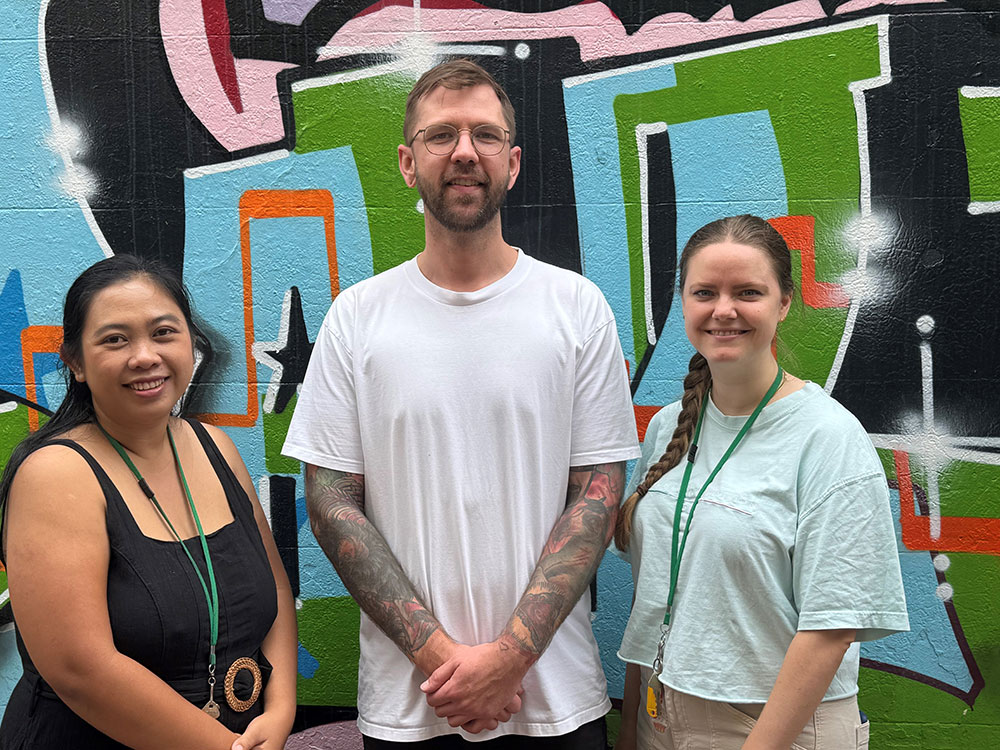- Australia-first trial is shipping ecofriendly bananas directly from Cairns to Japan
- Blind taste tests will compare Australian bananas with local produce
- DAF researchers trying to optimise shipping conditions for the freshest produce
Queensland-grown bananas and melons have been shipped to Japan, in an Australia-first trial aimed at breaking into the potentially lucrative Japanese market.
The red-wax-tipped Ecoganic® bananas, grown in north Queensland by Pacific Coast Produce, have been sent to a banana tasting and promotion event in high-end Tokyo retail store Yaoko.
Department of Agriculture and Fisheries (DAF) horticulturalists have been working with industry partners for four years to analyse the impact of shipping and supply chain conditions such as storage temperature, and ripening conditions, on the appearance and flavour of the fruit.
In another first, the banana shipment was airfreighted directly from Cairns instead of being transported to Sydney before export, saving time and costs.
Direct air travel also makes it easier to maintain optimum supply chain conditions, reducing the risk of food waste and ensuring the fruit arrives in the best condition. Data from this shipment will look at the possibilities and obstacles of exporting bananas as airfreight from Cairns.
DAF horticulturists will also conduct blind tastings with the Japanese public to identify consumer preferences and compare the Australian-grown bananas with imported fruit.
Emperor’s Pearl melons grown by Daintree Fresh also featured at this week’s tasting event. Queensland produces most of Australia’s melons, and our yellow-fleshed varieties are already popular in Japan. Niche varieties like the Emperor’s Pearl offer opportunities for industry growth.
The results of the project will be fed back to the Australian fruit-growing industry, with a view to local growers tapping into the Japanese market.
To date, there is no large-scale Australian banana export market to Japan.
More than 99 per cent of Australian-grown bananas are consumed locally, and our high relative wages mean Australian growers have been unable to compete with exports from south-east Asian countries.
But ecofriendly and organic fruit is able to fetch a premium price in Japan, offering a potential inroad for Australian growers.
The project, “Supply chain monitoring and improvement to reduce banana quality loss”, is being led by DAF along with the Fight Food Waste CRC and Pacific Coast Produce.
To scale-up premium melon exports to Japan, Daintree Fresh and supply chain partner Harrowsmiths International, received funding under the Food and Fibre to Market: Industry Partnerships (FF2M) program to undertake growing trials, including post-harvest treatments on this variety.
Quotes attributable to the Minister:
“Bananas are an important crop worth around $600 million to Queensland, and it’s vitally important that we keep exploring new potential markets,” Minister Furner said.
“By optimising how we export this fruit, we can ensure that the produce is as fresh and delicious when it arrives on the shelves in Japan as it is when we buy it here.
“DAF’s horticulturists play a key role in supporting industry to access more export pathways for Queensland produce, creating economic growth and benefit for Queensland.”
Quote from Managing Director Pacific Coast Produce Frank Sciacca:
“We’ve been exporting Ecoganic® bananas since 2009 to Singapore and Hong Kong, but the unpredictable arrival quality of our fruit has been a barrier to future market growth,” he said.
“Our Ecoganic® farming system is underpinned by strong evidence-based science to prove ecology restoration in commercial food production is possible.
“The project and the DAF team has shown us how critical it is to monitor supply- chain performance for identifying opportunities to improve practices that ensure consistent delivery of a premium product.”
Quote from Fight Food Waste CRC Chief Executive Officer Dr Steven Lapidge:
“Food waste costs Australia $36.6 billion each year, representing a major economic, environmental and social challenge,” he said.
“This project is a great example of how industry and research partners have come together to optimise export handling conditions for reducing waste along the banana supply chain.”
Images of the event can be found .








